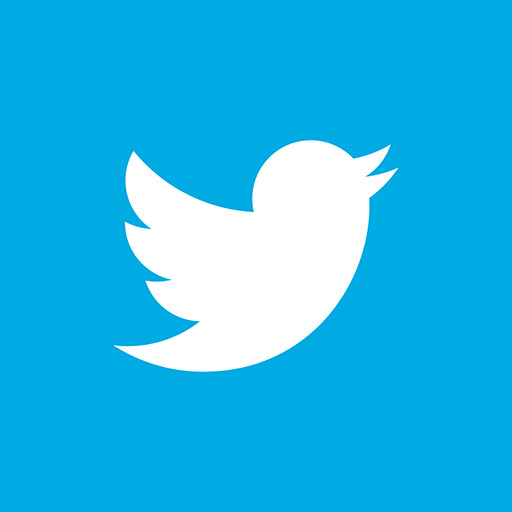When I was in between jobs a few years ago, I was scurrying around like a crazed rat that had lost its way in a maze. The week after I had been let go from a one-year contract job as a personal finance writer for an insurance company, I met with a bunch of different recruiters at creative job agencies around town.
And when I landed a job interview to basically proofread web articles for an investment firm downtown, I didn’t really know how I felt about it. The contract job (read: no benefits) would last anywhere from 6 to 18 months. The rate was definitely right: $44 and hour, plus $2 an hour for “parking fees.” So I did the math, and a full-time, $46 an hour gig roughly equaled $96,000 a year. Umm..certainly nothing to balk at.
I landed an interview, and an acquaintance who currently worked there and was kind enough to give me great pointers. Right after the interview the recruiter gave me a call to ask how it went.
“Good, I think.”
She asked, “If they offered you a job, would you take it?”
I replied, “I don’t know.”
I could tell she was disappointed in my response, but it was an honest answer.
At that point, I had landed a lot of great job leads for personal finance publications. Writing about money was something I had always wanted to do. I was in talks with about four different places, and in the “courtship phase,” so to speak. So again, nothing was for sure.
About an hour after the interview, I received a call from the recruiter that they wanted to offer me the gig. Of course, she needed an answer as soon as possible. Naturally, I equaled dollar signs to her. I asked if I could have the weekend to think about it.
I got zero sleep for practically two days. I asked my good friends what they thought. Some of them couldn’t imagine why I wouldn’t take it. “Wow, that’s a lot of money.” “You could save up and then take a year off if you really wanted to.” Another good friend asked had some really great advice. She asked me what I was scared of doing the most, and to run with that. My friends were well-meaning, but their words of advice were started to feel like a bunch of bees buzzing around my head. I knew the decision had to ultimately come from me.
Here’s the thing: I initially accepted the offer. It seemed like the practical thing to do. And wouldn’t you be crazy for turning down that sort of money?
That weekend, I met up with my friend Tricia. Her brother from Canada was in town, and we met up her Tricia’s husband Andy for dinner in Echo Park. Andrew was also freelancing at the time, and interested in what I was up to.
I told him about the job I was offered. Telling someone how much I was offered felt insane. Andy asked me a bunch of sound, practical questions that really shed some insight. By the end of our convo, I had changed my mind about accepting the contract job. I didn’t want to take it anymore.
Here’s what he asked:
How many clients do you have now?
I had three clients, and after FinCon, was in the “courtship phase” with about 4 clients at the time. But nothing was set in stone, which was pretty nerve wracking.
How long can you live off your savings?
I had a decent amount saved. Since I am such a frugal person and have been saving my beans since my first job after college, I could comfortably live off my savings for about a year. If I was going to barebones about it, I had enough to get by for about a year and a half.
This played a major part in my decision-making. If I had looming debt and no savings, I would’ve taken the job in a heartbeat. But because I had a cushion of savings, I could weather any potential storms.
How much are you making a month freelancing?
Income-wise, I had a great month the month prior. One of my clients requested more content from me, and I netted $6,000 from just one of my existing clients.
I would be making about $8,000 a month with the contract gig. The $2,000 difference didn’t seem that large. And I felt that if I really tried, I could make $8,000 in a single month on my own.
If you’re thinking about being a full-time freelancer, I suggest raking in at least half of what you’re making at your day job. You definitely need some anchor clients when you’re starting out. Plus, it takes a while to figure out your “productivity flow,” how much time it takes to complete certain assignments, and the scope of projects.
How excited are you about the actual job itself?
I felt confident in my abilities to do the job, but as far as day-in, day-out satisfaction and growth, there was nothing. Besides learning about that particular company’s organizational structure, and perhaps a bit more about investing, I knew I had a cap on learning—and earning potential. Although I was scared to, my gut was telling me that I would just be delaying what I really wanted to be doing.
As a freelancer, I oftentimes take on assignments and work with clients because there’s a chance to grow or learn in some way. Maybe I’m working with a top-notch editor that could really expand my skillset, and push me to be a better writer. Or for publication that is open to hearing a fresh spin or or some of my weird ideas (I have many of those, by the way).
And because I write every day, anywhere from 3-6 hours during the workweek, I’m a stronger—and more prolific—writer.
What do you want to do ultimately?
I’ve long been curious about freelancing. I know that a lot of people turn to freelancing because their hours are reduced at their jobs, or they get laid off. But this is something I had long fantasized about.
Andy suggested I do freelance. He said that I could be proofreading articles 40 hours a week for the next year, or lay the groundwork for my freelance writing business. And you know what? He was 100 percent right.
While I didn’t net six figures in my first year as a full-time freelancer, I didn’t starve, either. I actually netted more money in my first 10 months than what I was making at my old day job. And I worked less hours, which was pretty awesome. Plus I was able to hang out with my friends and family, and travel more. And there’s zero doubt in my mind that I made the right decision.
We respond to numbers. You see the words “six-figure salary” and the first words that pop in your head are like “whoa,” or “I want that.” But of course, you don’t know how many hours someone may put on the job to rake in that much dough, or if they’re running their own business, how much they had to put in to get that sort of return. (Case in point: Stefanie O’Connell’s business expenses for generating a six-figure income in 2016. I admire Stefanie for your savvy business prowess and transparency to her readers. Yeoch).
But there’s a lot that goes into making a big decision that goes beyond your salary and benefits (which are obviously both very important things to factor in). For me, having some clients in place, an idea of what you want to focus on, and having an emergency fund, are key.
If you’re seriously considering taking the leap into full-time freelancing, what are you biggest qualms about doing so?
Illustration: Viet Vu






Honestly – health-related stability.
It’s a little ridiculous, from the perspective that any company could choose to let me go at any time (right to work state), or heck, the company could go under, and I only have one “client”, to think that it’s stabler to stick with full time employment, I agree.
On the other hand, freelancing means that you’re only paid for the work that you produce. There are days where my productivity in particular areas, such as writing, is lower because my health has taken a dip. In those cases, I can shift to another set of responsibilities for a few days, or even longer if need be, so that I’m still getting work done but it’s not as taxing. While freelancing gives you a wider range of hats to wear (as your own marketer, bill collector, tax recordskeeper, and so on), they all require a minimum level of brain computing power!
I’m not opposed to freelancing full time, but I’m not prepared to dive headfirst into it.
These were great questions your friend asked you and it is definitely important to think about all of them before you accept a job offer! Sometimes a little more money isn’t worth the extra work if you aren’t excited about it or interested more in something else! We are huge supporters of you being a freelancer and we love your articles!
Thank you, CentSai for reading and for your support! 🙂 Made my day!